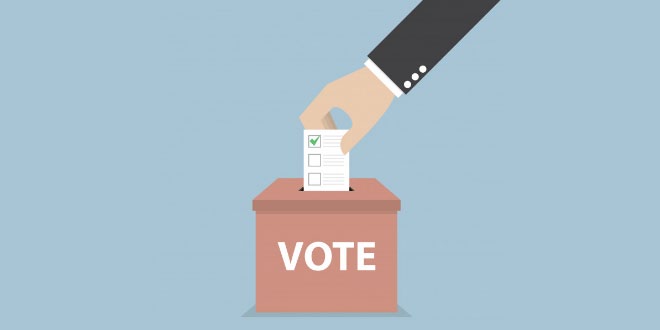Question: What are the minimum conditions needed for a democratic election?
Answer: There are five minimum conditions needed for a democratic election. They are:
- Everyone should have the right to vote and every vote should have equal value.
- Parties and candidates should be free to contest elections and they should offer some real choice to the voters.
- Elections must be held regularly .
- Candidates preferred by the people should be elected.
- Elections should be conducted in a free and fair manner.
Question: Can elections be considered as competition?
Answer: Elections can be considered as a competition. It is a political competition. The competition is among political parties. At the constituency level, it is a competition among several candidates. If there is no competition, elections will become pointless.
An electoral competition also has many demerits . It creates a sense of disunity and ‘factionalism’ in every locality. Different political parties and leaders often level allegations against one another. Parties and candidates often use dirty tricks to win elections.
Some good people who may wish to serve the country do not enter this arena because of this unhealthy competition.
Question: What is our system of elections?
Answer: Elections for the Lok Sabha are held every 5 years. After five years the term of all the elected representatives comes to an end. The Lok Sabha stands ‘dissolved’.
Elections for the Lok Sabha are held in all constituencies on the same day or within a few days. This is called a general election. Sometimes election is held only for one constituency to fill the vacancy caused by death or resignation of a member. This is called a by-election.
Question: What are electoral constituencies?
Answer:India is divided into different areas for purposes of elections. These areas are called electoral constituencies. We follow an area-based system of representation. The voters who live in a particular constituencies elect one person to represent their constituencies.
Question: How many constituencies do we have in India?
Answer:India is divided into 543 constituencies for Lok Sabha elections. The representative elected from each constituency is called a Member of Parliament.
Similarly, each state is divided into a number of Assembly constituencies, depending on its population and it size.The elected representative of the Assembly constituencies are called the Member of Legislative Assembly or an MLA.
Each Parliamentary constituency has several Assembly constituencies .
Question: What are Reserved Constituencies?
Answer: Reserved Constituencies are constituencies that are set aside for certain weaker sections of the society.
Weaker sections of the society may not stand a good chance to get elected to the Lok Sabha and the State Legislative Assemblies. They may not have the required resources, education and contacts to contest and win elections against others. Those who are influential and resourceful may prevent them from winning elections.
As our Constitution entitles every citizen to elect its representative, Reserved Constituencies are a necessity.
 Class Notes NCERT Solutions for CBSE Students
Class Notes NCERT Solutions for CBSE Students



